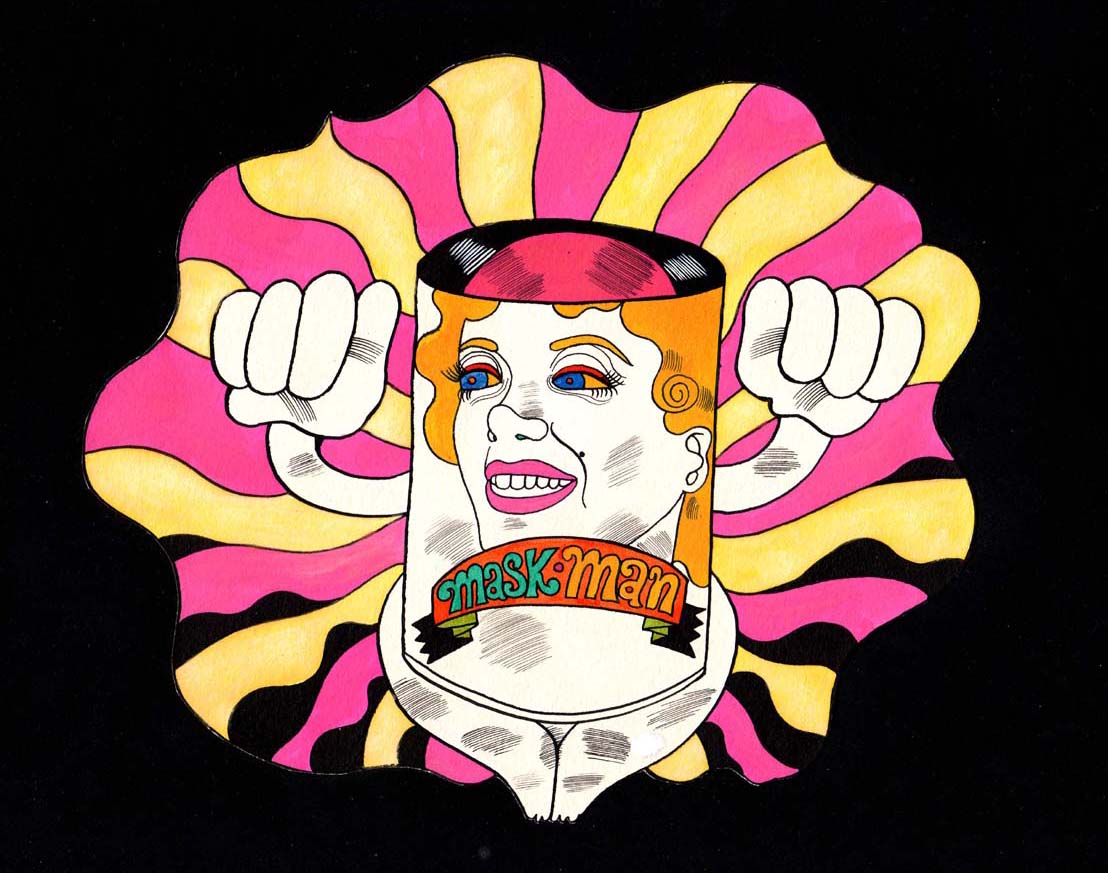Keiichi Tanaami
Good by Marilyn, 1971
Artist
Keiichi Tanaami
Title
Good by Marilyn
Year of creation
1971
Technology and duration
video installation, 7 minutes
Year of acquisition
2011
Acquisition of the foundation
Keiichi Tanaami was born in Kyobashi, Tokyo, in 1936, the eldest son of a cloth merchant.
When he was in junior high school, he visited the studio of Kazushi Hara, one of the most important cartoonists of the post-war period. After Hara's death, Tanaami turned to the picture stories of popular artists Shigeru Komatsuzaki and Souji Yamakawa.
Because of his parents' resistance, he failed to study art; Result of the low appreciation of art in Japan at the time. Eventually he was able to study design at Musashino University, Tokyo.
He quickly gained widespread recognition and won one of the most prestigious design awards from the JAAC (Japan Advertising Artists Club). Together with leading figures of Neo-Dada Japan such as Tomio Miki and Ushio Shinohara, Tanaami works as a graphic artist and film artist. He became acquainted with Robert Rauschenberg and the art critic Michel Tapie. At the height of psychedelic culture and the pop art movement, Tanaami's bold and colorful design won widespread recognition at home and abroad. Among other things, he created the album covers for The Monkees and Jefferson Airplane.
In 1969, Tanaami traveled to New York for the first time and encountered an interested art scene. Inspired by the experimental films of Andy Warhol, Kenneth Anger, Jonas Mekas and underground comic artist Robert Crumb, he began to increase his own film activities. His fresh avant-garde films immediately brought him widespread recognition, winning awards at festivals and exhibitions around the world. His films were now shown regularly at the Oberhausen International Short Film Festival, the Ottawa International Animation Festival and were shown, for example, at the Center Pompidou and the MoMA.
The films "Good by Elvis and USA", "Good by Marilyn" and "Oh Yoko" refer to Tanaami's experiences in the USA. “Oh Yoko” is the conclusion of this trilogy. The film, set to John Lennon's song "Oh Yoko", was made in 1973, the year John Lennon and Yoko Ono separated. Tanaami saw Marilyn and Elvis as the ultimate icons of American culture. Inspired by Warhol's thoughts, these two films about the female and male faces of America were created.
